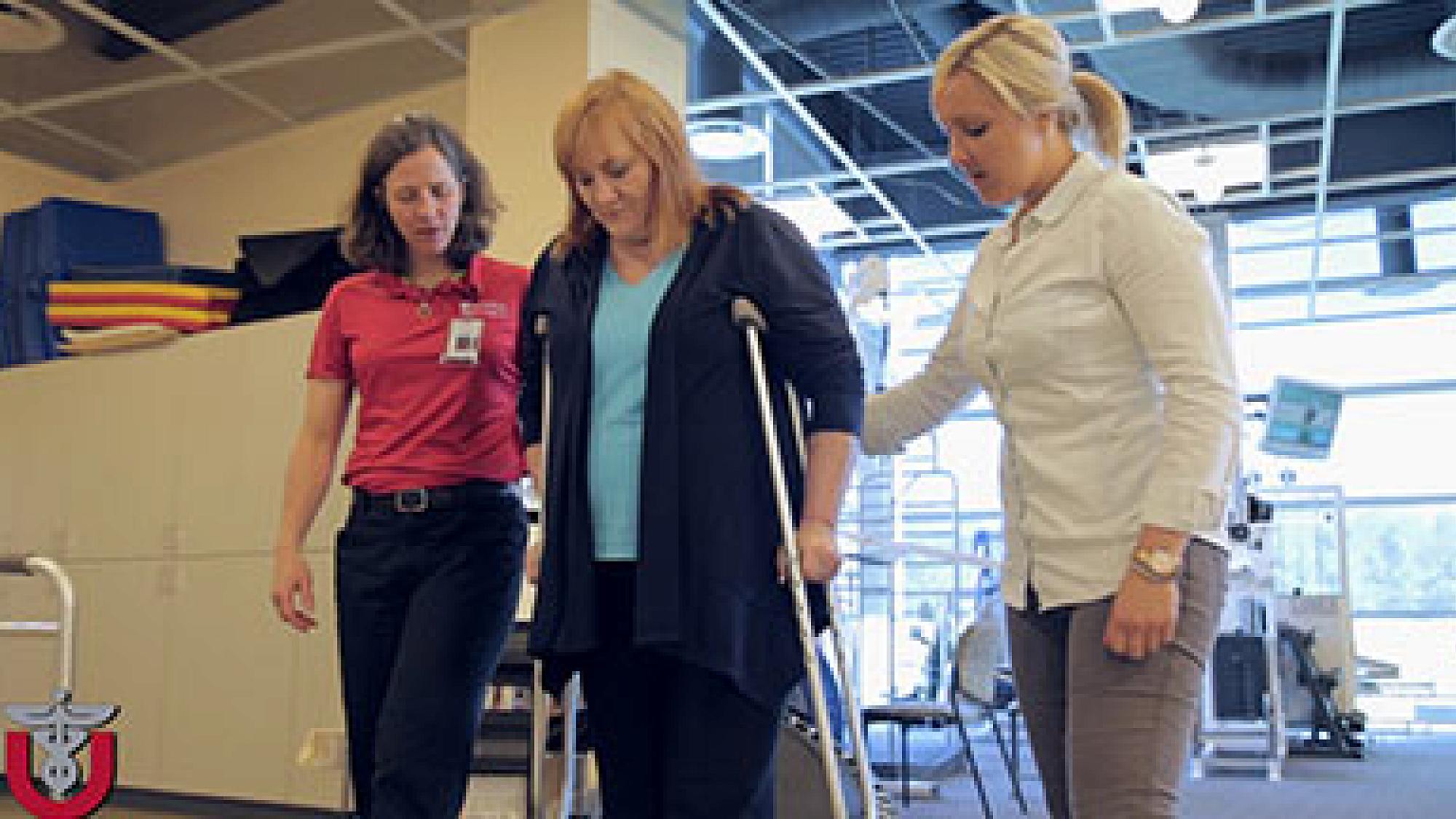What Is a Hip or Knee Replacement Infection?
A hip or knee replacement can help you enjoy your life more fully by decreasing your pain and increasing your overall function. But like all surgeries, hip and knee replacements come with some risks.
One of these risks is a joint replacement infection. These rare infections may develop several weeks after surgery. In some cases, you can develop an infection several years after a joint replacement.
What Happens If You Get an Infection After Knee or Hip Replacement?
Usually, when you have bacteria in your bloodstream, your immune system quickly attacks and kills the bacteria. Your immune system struggles to attack bacteria around a joint replacement because the implant is made of metal and plastic. Bacteria can form a film around the implant and surrounding tissues, making it difficult, if not impossible, for your immune system to reach the infection. Because of this, you will often need surgery to treat a joint replacement infection.
How Common Is Infection after a Hip or Knee Replacement?
Infections after a joint replacement are not common. National and University of Utah Health data shows that only about one in 100 patients develop an infection after a hip or knee replacement. It is less common in people who are in good overall health.
Knee & Hip Replacement Infection Symptoms
In the first four to six weeks after your joint replacement, watch for infection symptoms:
- Chills
- Cloudy wound drainage
- Excessive redness (cellulitis)
- Fevers above 101 degrees
- Foul smells
- Opening wound edges
- Prolonged or excessive wound drainage
Signs of infection years after a hip or knee replacement may include the following:
- Difficulty putting weight on the joint,
- Excessive redness
- Fever or chills
- Pain while moving the joint
- Swelling
- Warmth around the joint
Types of Infection after Hip Replacement and Knee Replacement
After a hip or knee replacement, you may develop an infection around the scar or surgical wound or deep around the artificial implant.
Joint Infection Causes
Infections occur because of the bacteria that live all around us. After replacement surgery, bacteria can sometimes get into your new joint through your surgical incision or through your bloodstream.
You can also get an infection much later when an infection from another part of your body travels to the implant. Bacteria may enter your body in a number of ways:
- Cuts or other wounds in your skin
- Colorectal procedures
- Dental procedures
- Other viral, bacterial, fungal, or parasitic infections
- Surgical incisions from other procedures
Hip & Knee Replacement Infection Risk Factors
You may have a higher risk of infection after a joint replacement if you have any of the following conditions:
- Cancer
- Conditions that affect your immune system, such as HIV/AIDS
- Conditions that require immunosuppressant medications like rheumatoid arthritis
- An organ transplant and take anti-rejection medications
- History of smoking or any use of nicotine
- Diabetes
- Obesity
- Peripheral vascular disease
It’s a good idea to see your primary care doctor if you get a bacterial infection. Many infections, including viral infections like a cold or the flu, don’t require antibiotics. But you may need antibiotics if you have either a cut that looks worrisome or a bacterial infection such as a UTI.
Can a Hip or Knee Replacement Get Infected Years Later?
A hip or knee replacement can get infected years after surgery. Usually, these infections develop when you have another bacterial infection, such as pneumonia or a urinary tract infection (UTI), that spreads to the joint replacement.
How Long after Hip Replacement or Knee Replacement Can You Get an Infection?
You can get a joint replacement infection at any time if you have a joint replacement.
Can a Tooth Infection Affect a Knee Replacement or Hip Replacement?
A tooth infection can affect a joint replacement. The bacteria may travel through your bloodstream and stick to the artificial implant.
Can a UTI Infect a Knee Replacement?
A UTI can infect a knee or hip replacement. The bacteria that caused the UTI can travel to your artificial joint and cause an infection.
Hip & Knee Replacement Infection Treatment
The type of treatment you need depends on how long you’ve had the infection. If your surgeon is sure it’s only been a few weeks, treatment may include a smaller surgery to wash away bacteria and administer local and intravenous (IV) antibiotics.
Often, we will treat a joint replacement infection with a two-stage process. During stage one, we will remove the infected implant, use a temporary joint replacement, and treat the infection with topical and IV antibiotics. During stage two, we will clean out the joint again and remove any temporary pieces to place a new artificial joint. Learn more about hip and knee revision surgery.
How Long Does It Take to Recover from a Joint Infection?
Recovering from a joint infection can take up to 9–12 months. In some cases, you may need to take oral antibiotics for the rest of your life.
What’s the Success Rate of Joint Infection Treatment?
Treatment success will depend on several factors:
- The type of bacteria involved in the infection
- How long you had the infection
- Your overall health
The longer you have an infection, the more difficult it will be to treat. Studies show a wide variety of success rates, depending on the type of infection and the treatment. On average, using the two-staged procedure to treat a long-standing infection has a success rate of about 80–90%.
How to Prevent Infection After Hip or Knee Replacement
Our hip and knee reconstruction specialists use a waterproof (occlusive) dressing that contains silver that helps reduce your chances of infection after a joint replacement. If needed, we may use a negative pressure dressing (wound vac) to help close the wound faster.
We also will follow prevention protocols:
- Ensure our operating rooms and equipment are sterile
- Give you antibiotics before and after surgery according to national guidelines
You can also lower your risk of infection in a number of ways:
- Maintain a healthy weight before surgery.
- Control diabetes.
- Manage any nutrient deficiencies with supplements or other treatments.
- Quit all sources of nicotine.
- Take antibiotics before any future dental work or other surgical procedures if you have high risk factors.
When to See Your Orthopedic Surgeon
If you think your joint replacement is infected, call your surgeon immediately. Your surgeon will refer you to one of our joint replacement specialists if needed.


